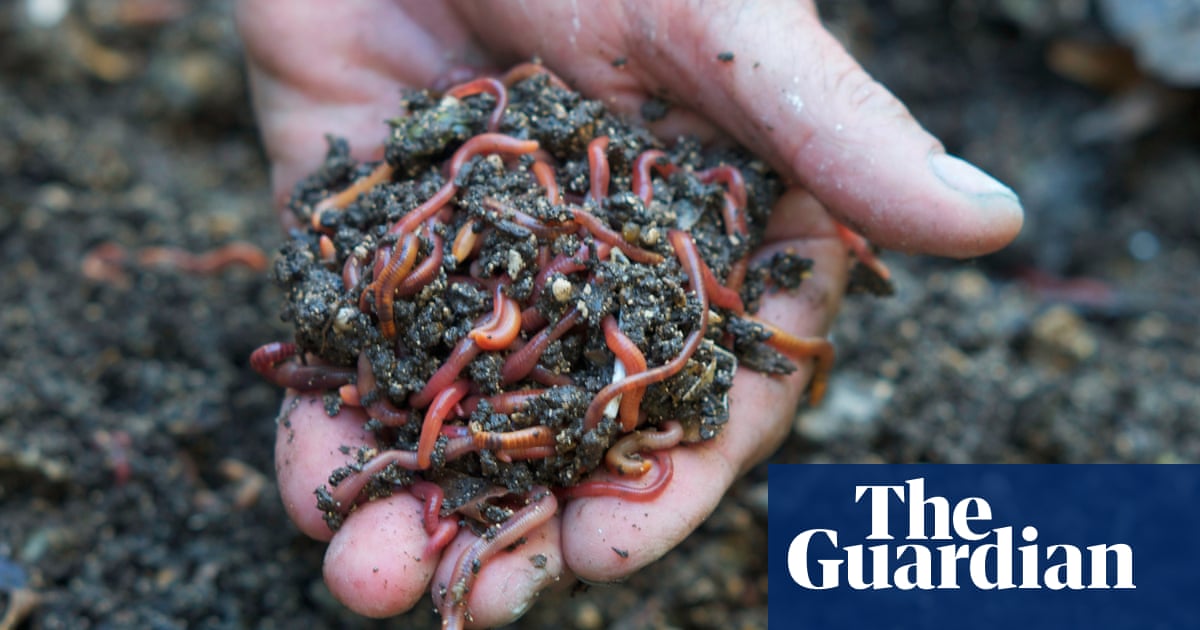‘Pesticides by stealth’: garden soil conditioners killing worms, experts fear | Invertebrates


Gardeners are inadvertently killing scores of earthworms with soil conditioners marketed as “organic”, experts fear, as they call for tighter regulation on products that poison the invertebrates.
Earthworms may appear humble, but Charles Darwin thought their work in improving soil structure and fertility was so important he devoted his final book to them and said: “It may be doubted if there are any other animals which have played such an important part in the history of the world as these lowly organised creatures.”
However, some gardeners who want a tidy lawn remove worm casts, which can be viewed as unsightly, particularly if the casts – made of the worms’ excrement – are squashed and spread over the surface.
Dozens of products available to gardeners and greenkeepers say they combat these casts, reducing the time-consuming task of their manual removal. However, most contain saponins, which have been found to be highly toxic to earthworms. Some of these are marketed as “organic soil conditioner” with no mention of the deadly effect they have on worms. Others promise to “irritate and deter” worms, pushing them to deeper soil – not mentioning the active ingredient that could kill them.
Despite their potential toxicity to garden creatures, soil conditioners do not go through the same rigorous risk assessments as pesticides, experts say, and are lightly regulated.
Worms ingest dead plant material and break it down into nutrients, and healthy soil is important for a thriving garden and the wider ecosystem. The Royal Horticultural Society points out that casts are good for the soil and can be used as a nutrient-rich potting medium, and it discourages their removal.
Worms are thought to be under threat: though studies into their populations are scarce, recent research suggests numbers in the UK may have fallen by about a third in the past 25 years.
Prof Dave Goulson, a biologist at the University of Sussex, has written extensively on gardening in symbiosis with invertebrates, and has been investigating the soil products. He told the Guardian: “Dozens of products are being sold to gardeners and groundskeepers, especially [at] golf courses, to combat worm casts. Many contain saponins, found in one scientific study to be ‘highly toxic’ to earthworms.
“The products are widely marketed online, with some bulk products obviously aimed at professional greenkeepers, other smaller bottles aimed at gardeners. The saponin usually seems to derive from ‘tea seed’, so is an organic product, but that doesn’t mean it is harmless: botulinum toxin and cyanide are organic. Groundskeepers should not be allowed to poison earthworms while pretending to ‘condition’ the soil. It seems to be pesticides by stealth.”
after newsletter promotion
Campaigners are calling for the government to investigate these products, suspending their use until their effect on earthworms and other wildlife is fully understood.
Nick Mole, a policy officer at Pesticide Action UK, said: “Fertilisers and soil conditioners aren’t subject to anywhere near the same level of scrutiny as pesticides. They don’t appear to go through a risk assessment process to ascertain if they are harmful to non-target species such as earthworms, which is highly concerning given how widely they are used.
“Any substance that is intentionally released into the natural environment has the potential to cause harm, even those labelled as organic. Now that the alarm bells have been sounded the UK government must act quickly to suspend use of these products while they investigate further, including conducting thorough risk assessments looking at the impact of these products on earthworms and other wildlife, including aquatic species. Or will the government sit on its hands for another 10 years, as it did with neonicotinoids and bees?”
A Department for Environment, Food and Rural Affairs spokesperson said: “Decisions on the use of pesticides are based on careful scientific assessment of the risks. Pesticides are only allowed on to the market if they meet strict environmental requirements and pose no threat to human health.”
Source link




